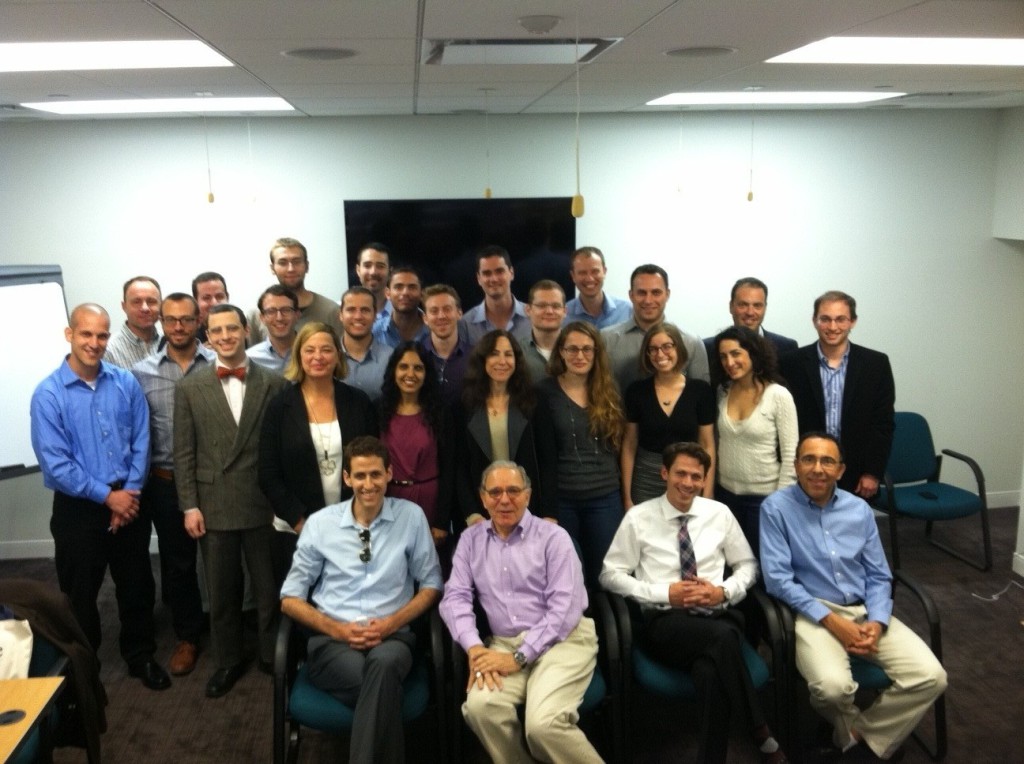Economic First Principles
Kristol’s Three Promises of Capitalism
 Yuval Levin began his session on morality and the welfare state by drawing the group’s attention to the writings of Irving Kristol. When it came to the free economy, Kristol argued that capitalism as a system recommends itself to society with three promises, but the question remains; has it kept them?
Yuval Levin began his session on morality and the welfare state by drawing the group’s attention to the writings of Irving Kristol. When it came to the free economy, Kristol argued that capitalism as a system recommends itself to society with three promises, but the question remains; has it kept them?
Wealth Creation – the capitalist system has undoubtedly delivered on this promise and in lifting millions out of poverty the free market’s ability to drive economic growth becomes another moral argument in favor of capitalism.
Freedom – the promise of freedom has been a central tenet of the case for capitalism. By providing the individual with a vast range of alternative options, capitalism has done much to extend freedom in the human experience.
Justice – arguably the free market is a just system in as far as it pledges to reward hard work and talent while punishing the opposite. Crucially, capitalism promises to create a fair system through the reward of merit.
Yet it is on this third point that Kristol identifies a problem. Is it truly the case that the market economy always does reward those who work the hardest and display the most talent? It would seem that the volatility of the market can often be hard on those who seemingly followed all the ‘rules’ for success. Capitalism may not promise to distribute wealth evenly, it does however offer to do so deservingly and therefore justly. Yet if it fails on this account can the capitalist society still be said to be ‘good’? And if it cannot be said to be that, how long will a population tolerate living in a society with a system they do not consider to be just?
Confronting Capitalism’s Contradictions
While Marxists may have predicted the collapse of capitalism on account of systemic internal contradictions, it may in fact be the case that there are more subtle tensions that a purely materialist account, such as Marxism, would be unable to detect. The pressing question here is one that might broadly be understood as concerning virtue.
Yuval Levin highlighted two areas that the question of virtue in the capitalist society confronts. One is the simple question of whether or not the citizenry living under a free market system perceive it as being a just system, and if they fail to see it as being legitimate, to what degree can they tolerate this? The second issue is that of whether the capitalists system produces and nourishes the kind of citizenry that in turn sustain a successful free market economy.
On the first point it is interesting to note that the ‘crisis of capitalism’—in as far as there is such a thing–is primarily experienced by the middle class, who experience not a crisis of material wellbeing but rather a crisis of meaning. As Irving Kristol observed of the student protests of the 1960s and 1970s, and as Yuval Levin observes of the more recent Occupy Wall Street movement and Israeli tent protests, these demonstrations were being run by middle class individuals. This group of people were not suffering materially, rather they ceased to experience the system they lived in as being virtuous or meaningful. That is to say, they failed to see an economic system oriented primarily around profit as being legitimate.
The second point focuses on the way in which individuals possessing certain key virtues are responsible for driving the capitalist system. Essentially the free market relies upon those entrepreneurial individuals who display the discipline and self-restraint to delay gratification in the present and invest for the future. Yet, it is questionable whether this is the kind of person that the free market breeds. In a sense, economic growth under capitalism is driven by consumers demanding more goods and services than they actually require; quite the opposite of disciplined self-restraint, and as Yuval Levin points out, this might widely be considered a vice.
The contradiction is that capitalism seems inclined to create the kind of individuals that are the antithesis of those necessary for a successful free market while at the same time alienating those who desire to live in a society predicated on virtue rather than the vices of materialism and over consumption. The reality is that capitalism may allow people much freedom and many choices, but it relies on the majority to exercise that freedom responsibly.
The Virtue of the Ordered Life
It would seem that under the present economic system there is a general pattern that if followed will likely prevent an individual from falling into poverty. Yuval Levin draws the group’s attention to statistics that would suggest that if people graduate high school, marry and have children–in that order–then their chances for staying out of poverty are much greater. Those who do not follow this pattern, as in the case of single parents or anyone who does not complete a basic high school education is far more vulnerable to the poverty trap. It would seem then that the free market favors a certain kind of orderly lifestyle. Yet, for some participants this raises another question. If the system of democratic capitalism truly promotes freedom, then how is this to be squared with the fact that certain lifestyles appear to be penalized by that same system? Where is the freedom not to marry, or the liberty to have children out of wedlock? This of course is a reminder that the free market favors citizens who display a specific set of virtues and works best when people choose to exercise their freedoms responsibly.
Welfare and the Free Market
As Yuval Levin noted, every nation with an advanced market economy has found it desirable to develop a welfare system of some kind or another. Yet inevitably most cases seem to produce welfare systems locked into an unhappy relationship with the free market. Successfully creating a welfare system that harmonizes with the free market remains an elusive undertaking. It is only natural that if the state provides assistance for single mothers and the unemployed, then on some level a form of incentive is created which at the very least encourages some to remain unemployed or unmarried, even if most people won’t be enticed into choosing these options on account of welfare subsidies.
It is concerning to note that last year 41 percent of births in America were to an unmarried mother. This is a dramatic jump from the 1970s when that figure stood at around 10 percent. Still, among the poor the level of illegitimacy is still more problematic. For this sector of the population it is estimated that the level of illegitimacy now accounts for more than half of all births. These trends have to be understood as resulting from certain cultural shifts, but there is no doubt that a welfare system can make such lifestyles viable. In this way welfare perversely incentivizes people to act against what would otherwise be in their own self-interest. As such poverty becomes inter-generational with the repetition of social patterns that make the escape from poverty all the more difficult.
The Ongoing Government Debate
Yuval Levin noted that it is in many ways peculiar that even now Americans are still debating what kind of government they should have. However, this debate highlights the enduring division between the left and right in the United States. Levin suggests that what is in dispute here is basic matters of administration that to be sure concern the size of government but also the much deeper question of the degree of government involvement in the economy. The left would wish to push the American economy toward the Social Democratic model, thus seeking to manage economic and social problems through a system of centralized planning. For free market conservatives arguments about a small and unintrusive government are undoubtedly bound up with greater principles about the liberty of the individual.
Still, Levin argues that in Israel this debate requires a fair degree of development. There the economic debate simply isn’t organized in the same way that it is in America or even many European countries. Fundamentally, the economy needs to be thought about in terms of its wider social purpose. Levin’s concern here is that those involved in Israel’s political life are not engaged in thinking about these questions in this way.
Insights on the Markets
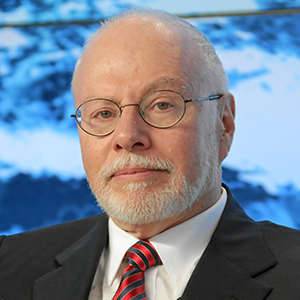 Speaking before the group, Paul Singer revealed some of the truths that he has learned about markets over the years. More than anything, Singer conveyed a sense of just how unpredictably turbulent the markets can be. Accordingly, he councils investors that in a world in which capital is so incredibly hard to preserve and maintain, they should adopt an attitude of both skepticism and humility. By accepting that the world is on the whole a poorly run place, the investor can minimize the tendency to make the kind of mistakes that might arise from attempting to perceive certainties that are in reality not actually there.
Speaking before the group, Paul Singer revealed some of the truths that he has learned about markets over the years. More than anything, Singer conveyed a sense of just how unpredictably turbulent the markets can be. Accordingly, he councils investors that in a world in which capital is so incredibly hard to preserve and maintain, they should adopt an attitude of both skepticism and humility. By accepting that the world is on the whole a poorly run place, the investor can minimize the tendency to make the kind of mistakes that might arise from attempting to perceive certainties that are in reality not actually there.
Illuminating the picture further, Singer explained why the market cannot simply be left in a ‘state of nature’ and why he believes certain kinds of regulation is always going to be necessary. On this point it is important to understand that what is being advocated here are the kind of regulations that would be quite specifically goal driven and constructed in such a way so as not to stifle the natural function of the markets, in contrast to many of the kinds of regulations that have been proposed previously.
Singer urged his listeners not to think of the markets as being in some way miraculously efficient. The appearance of efficiency, explained Singer, is only there on account of the hours and hours that investors spend pouring over research, which presumably to some degree assists them in a more prudent decision making. This touches on a wider point that Singer made, arguing that markets are a profoundly human phenomenon and ought not to be viewed as a primarily mathematical or statistical entity. Rather, we should remember that the ever undulating contours of the markets are being driven by continuously changing human emotions and decisions.
A Conservative Outlook
Paul Singer provided for the group a basic outline of what he understands the conservative worldview to be, in contrast to that of the left, and explained why he finds the former to be the more compelling of the two.
The fundamental differences as Singer sees them come down to first principle questions, such as whether one favors the distribution of power over its centralization, whether one prefers economic freedom to greater regulation, and whether or not one believes that the emphasis should be placed on driving growth rather than overseeing redistribution of wealth. And of course, conservatives have consistently placed value on there being strong America while also remaining staunch in their support for Israel over the decades. Indeed, Singer voices his concern that whereas once support for Israel was far more uniform across the left-right divide, today what it means to be pro-Israel has become far more complicated and problematic for the left.
Singer made no secret of where he feels the current administration has failed, most explicitly on the matter of growth. For Singer, the policies of recent years have been essentially growth suppressive, with Obamacare serving as an overtly growth suppressive measure. In this way, explained Singer, these anti-growth policies have created a scenario in which inequality is being driven by the reality of stagnant wages against the rising value of assets. In turn, the Obama administration has been able to use the inequality that its own growth suppressive policies are exacerbating as a marketing tool to further advance its own agenda. And when Singer was pressed further on the problem of inequality he responded by trying to give the participants greater clarity on this point and reminded them that a stock market crash brings about greater equality, as does a collapse in house prices. Equality simply isn’t a basis for economic policy.
Transformative Growth
 Douglas Holtz-Eakin begins the discussion by encouraging the group to think about the great power represented by economic growth. Quite simply, there is nothing more powerful than economic growth when it comes to improving the quality of life and a nation’s standing in the world. As Holtz-Eakin points out, a large and growing economy allows a country to have considerable influence through the avenues of soft power while also opening a means for that nation to project its values around the world. And for those who place importance on the provision of public services, growing economic resources can certainly assist a society in meeting its wider social goals.
Douglas Holtz-Eakin begins the discussion by encouraging the group to think about the great power represented by economic growth. Quite simply, there is nothing more powerful than economic growth when it comes to improving the quality of life and a nation’s standing in the world. As Holtz-Eakin points out, a large and growing economy allows a country to have considerable influence through the avenues of soft power while also opening a means for that nation to project its values around the world. And for those who place importance on the provision of public services, growing economic resources can certainly assist a society in meeting its wider social goals.
Growth and Happiness; what’s the correlation?
During the discussion the question was raised; is there a relationship between societies that experience an increase in wealth and how happy the members of those societies are? Douglas Holtz-Eakin responds that research would certainly suggest that happiness and greater wealth are linked with one another. That said there are important counterexamples, such as in societies where people may experience an improvement in livening standards but have very little personal freedom.
On this subject Tikvah Fund Chairman Roger Hertog points the group to the research and writings of AEI President Arthur Brooks who has specifically written about the matter of wealth and happiness. Of course there are questions about the sense of wellbeing experienced by those who may enjoy increasing wages but have incredibly stressful and high pressure jobs. Yet on this point Hertog explains to the group how Brooks’ findings would strongly suggest that happiness is closely related to an individual’s sense of earned success. The emphasis here is not only on success, but crucially on success that is earned and deserved. No doubt this provides an individual both with a sense of meaning but also with an emboldened sense of self-esteem. In addition, Roger Hertog puts to the group the idea that this success combined with religious belief provides the impetus to act charitably; supporting those communities and institutions that an individual favors assisting. This ability to impact positively upon desired causes surely contributes significantly to the sense of satisfaction that an individual may feel.
Live Issues in the Israeli Economy
The Netanyahu Revolution
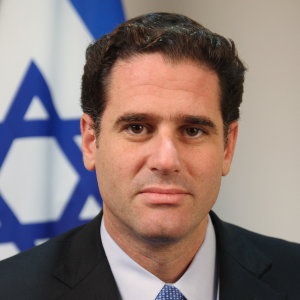 Ambassador Dermer spoke at length about the role Prime Minister Netanyahu has had in driving the crucial economic reforms that have been so important for the current boom in Israeli growth. Arguably this phase of free market reform has been underway for around 18 years now. Taking Netanyahu’s time as Prime Minister together with his years as Finance Minister, Netanyahu has overseen 11 of these 18 years of reform. What Netanyahu had to fundamentally shift was not only policy, argues Dermer, but an entire mindset that had become prevalent in Israel. The move toward a freer economy would not only allow for greater competition, but importantly it would seek to give Israel’s innovative brainpower access to capital. Ending currency controls, which had remained in place until 1996, had been a vital part of this.
Ambassador Dermer spoke at length about the role Prime Minister Netanyahu has had in driving the crucial economic reforms that have been so important for the current boom in Israeli growth. Arguably this phase of free market reform has been underway for around 18 years now. Taking Netanyahu’s time as Prime Minister together with his years as Finance Minister, Netanyahu has overseen 11 of these 18 years of reform. What Netanyahu had to fundamentally shift was not only policy, argues Dermer, but an entire mindset that had become prevalent in Israel. The move toward a freer economy would not only allow for greater competition, but importantly it would seek to give Israel’s innovative brainpower access to capital. Ending currency controls, which had remained in place until 1996, had been a vital part of this.
Ambassador Dermer recounted for the group how, counter to so much of what economic advisers had recommended at the time, in 2003 Netanyahu pushed ahead with an extensive policy of cutting taxes and cutting public spending. At that time experts were insisting that Israel’s economic problems were primarily being caused by external factors and as such, they argued that the way forward would be through a tax and spend strategy. Instead Netanyahu capped public spending and reformed taxation in such a way that would favor growth. As a result Israel’s growth rate was transformed from negative one percent to as high as five percent annually. Since then Israel has enjoyed ten years of almost entirely uninterrupted growth. This despite the global downturn during that same period.
Why Israel became the Start Up Nation
 Dan Senor asks the question; why has Israel become such an exceptional hub for hi-tech entrepreneurship and investment? After all, Israel may have brainpower but it is certainly not alone among the nations of the world in having a large number of patents per capita. In this respect Israel is far from unique in being a nation that excels at generating ideas. Yet, Senor suggests that the distinguishing factor in Israel’s case relates to its culture of national and military service. This is not simply a matter of technical training. What the IDF provides Israelis with is an experience in leadership roles and elite army units at an early and formative stage in their lives. These become crucial years for developing skills in team work, ‘improv thinking’ and leadership abilities. No doubt all of these have prepared and enriched Israelis for their ventures into the world of hi-tech start-ups.
Dan Senor asks the question; why has Israel become such an exceptional hub for hi-tech entrepreneurship and investment? After all, Israel may have brainpower but it is certainly not alone among the nations of the world in having a large number of patents per capita. In this respect Israel is far from unique in being a nation that excels at generating ideas. Yet, Senor suggests that the distinguishing factor in Israel’s case relates to its culture of national and military service. This is not simply a matter of technical training. What the IDF provides Israelis with is an experience in leadership roles and elite army units at an early and formative stage in their lives. These become crucial years for developing skills in team work, ‘improv thinking’ and leadership abilities. No doubt all of these have prepared and enriched Israelis for their ventures into the world of hi-tech start-ups.
The Prospect of Replicating the Hi-Tech Sector Boom
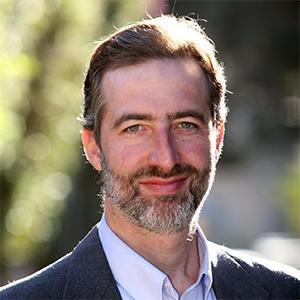 When considering Israel’s remarkable successes in the hi-tech sector one has to wonder how these achievements might be emulated in other areas of the Israeli economy. During his presentation Saul Singer confronted this weighty question. As Singer outlined, the problem that we confront here is that the very things that have allowed for growth in the hi-tech sector are inverted in other parts of the Israeli economy. That is to say that while hi-tech has benefited from low levels of taxation, low levels of regulation and high levels of competition, in other areas of the Israeli economy there is still relatively high levels of taxation, high levels of regulation and often a noticeable lack of competition. Presumably, for the ‘Start-Up Nation’ success story that we have witnessed in hi-tech to be replicated in other parts of the Israeli economy further liberalization will be necessary.
When considering Israel’s remarkable successes in the hi-tech sector one has to wonder how these achievements might be emulated in other areas of the Israeli economy. During his presentation Saul Singer confronted this weighty question. As Singer outlined, the problem that we confront here is that the very things that have allowed for growth in the hi-tech sector are inverted in other parts of the Israeli economy. That is to say that while hi-tech has benefited from low levels of taxation, low levels of regulation and high levels of competition, in other areas of the Israeli economy there is still relatively high levels of taxation, high levels of regulation and often a noticeable lack of competition. Presumably, for the ‘Start-Up Nation’ success story that we have witnessed in hi-tech to be replicated in other parts of the Israeli economy further liberalization will be necessary.
Israel’s Unprecedented Energy Opportunity
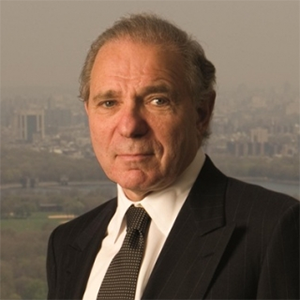 The Tikvah Fund’s Chairman Roger Hertog opened the session by making the point that relatively few long existing countries have made sizable Oil or Gas finds in recent decades. This kind of thing doesn’t happen often. The energy opportunities arising for Israel today are arguably comparable to the discoveries of North Sea Oil that came into play during the mid-1970s. These finds of course had a significant impact on the economies of Britain and Holland. However Hertog points us to the case of Norway as perhaps being most instructive for thinking about the Israeli find. The crucial similarity here being that like Israel, Norway has a relatively small population comparative to the energy resources that have been discovered. Ultimately, North Sea Oil would bring about a major reorientation for Norway and the Norwegian economy’s place in the world. This should certainly lead us to consider what kind of far-reaching effects natural gas and oil discoveries might have for Israel in the medium to long term.
The Tikvah Fund’s Chairman Roger Hertog opened the session by making the point that relatively few long existing countries have made sizable Oil or Gas finds in recent decades. This kind of thing doesn’t happen often. The energy opportunities arising for Israel today are arguably comparable to the discoveries of North Sea Oil that came into play during the mid-1970s. These finds of course had a significant impact on the economies of Britain and Holland. However Hertog points us to the case of Norway as perhaps being most instructive for thinking about the Israeli find. The crucial similarity here being that like Israel, Norway has a relatively small population comparative to the energy resources that have been discovered. Ultimately, North Sea Oil would bring about a major reorientation for Norway and the Norwegian economy’s place in the world. This should certainly lead us to consider what kind of far-reaching effects natural gas and oil discoveries might have for Israel in the medium to long term.
The Geopolitical Impact of Israel’s Oil and Gas Finds
 Arthur Herman discussed the potentially transformative effect that Israel’s changing energy outlook could have on its wider political concerns in the region. Assuming that Israel is able to capitalize on the export potential of its natural gas and shale oil deposits, the export potential could be significant. By supplying its neighbors’ energy needs, Israel might be able to enter into a relationship with other countries in the region that allows for a real shift in both power and perceptions. Similarly, if Israel were to find a way to export gas to Europe, this could both improve relations on that front while also offering Europe the possibility of a way out from its dependency on Russian gas—with all the geopolitical implications that this could have.
Arthur Herman discussed the potentially transformative effect that Israel’s changing energy outlook could have on its wider political concerns in the region. Assuming that Israel is able to capitalize on the export potential of its natural gas and shale oil deposits, the export potential could be significant. By supplying its neighbors’ energy needs, Israel might be able to enter into a relationship with other countries in the region that allows for a real shift in both power and perceptions. Similarly, if Israel were to find a way to export gas to Europe, this could both improve relations on that front while also offering Europe the possibility of a way out from its dependency on Russian gas—with all the geopolitical implications that this could have.
Still, there are other promising possibilities to be explored in this field. Arthur Herman notes that the shift over to unconventional gas and oil production will naturally be in favor of free and democratic countries. Indeed, the countries that are set to lead in this area include the US, Canada, Norway, Australia and Israel. As this trend progresses, the Gulf States and Iran appear likely to lose out. Whereas in the past the geographical lottery of natural gas and oil deposits had assisted many of the Middle East’s most despotic regimes, the future of unconventional energy production may well be to the free world’s benefit.
The Need to Act Rapidly on Offshore Gas Finds
During the course of the discussion, both Jonathan Baron and Arthur Herman argued for the need to seize the opportunity presented by the discovery of Israel’s offshore natural gas deposits, albeit each for quite different reasons.
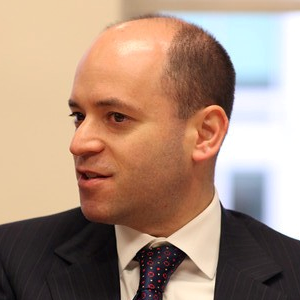 Jonathan Baron emphasized the danger posed by delaying and showing indecision. This could have severely detrimental consequences for Israel’s emerging gas and oil industry. Baron’s point here is that Israel cannot afford to alienate investors who have no shortage of other areas for natural gas and oil exploration. If Israelis convey a sense of ambivalence or unreliability on this matter then confidence among investors could be greatly damaged. The scenario Israel finds today is unlikely to remain static. As such, Israel cannot assume that if it postpones these projects now there will still be enthusiastic investors waiting in the wings later.
Jonathan Baron emphasized the danger posed by delaying and showing indecision. This could have severely detrimental consequences for Israel’s emerging gas and oil industry. Baron’s point here is that Israel cannot afford to alienate investors who have no shortage of other areas for natural gas and oil exploration. If Israelis convey a sense of ambivalence or unreliability on this matter then confidence among investors could be greatly damaged. The scenario Israel finds today is unlikely to remain static. As such, Israel cannot assume that if it postpones these projects now there will still be enthusiastic investors waiting in the wings later.
Arthur Herman concurred with the argument that Israel would be wise to act decisively in taking full advantage of these natural resources. Yet for Herman the geopolitical considerations here are key. Importantly, says Herman, given the way in which the Obama administration has overseen such a concerning weakening in US-Israel relations, developing a lucrative natural gas export industry at this time could be one way to counteract this trend. And as Herman reminded the group, all the while Iran is watching this matter incredibly closely. The Iranians have their own undeveloped natural gas fields that they would no doubt wish to see utilized in the event that the sanctions regime unravels. It would certainly appear that Israel would be wise to act now before outside actors intervene in a manner that might undermine existing opportunities.
Roger Hertog’s Concluding Remarks
At the close of the week’s proceedings, Tikvah Fund Chairman Roger Hertog suggests to the group that the left-right distinction could be less divisive than it currently is. It is the case, Hertog proposed, that most people across the political spectrum have similar ideas about objectives, they simply disagree on the means. Such basic goals as helping people, improving the lot of the disadvantaged and promoting fairness are shared by people on both the left and right. It is Hertog’s contention that all too often it is simply perception that clouds how the two political factions understand one another’s motives.
More instructive still were Mr Hertog’s thoughts on Israel’s rich human capital. Noting the diverse talent and remarkable caliber of the participants, Hertog observed that these individuals are themselves a representation of the immense human capital that has advanced Israel’s prospects against all the odds. This, Hertog contends, is deeply related to a Jewish dynamic at work in Israel’s citizenry. Whether they are aware of it or not, Hertog explained, Israel’s people are an expression of a long and enduring legacy of the Jewish commitment to developing a moral life and promoting the human good.
As such, Hertog urged the participants to make their voices heard in the ongoing debates and conversations that they care most about.
- Mark Dubowitz on the Dangers of a Lame-Duck President
- Matthew Levitt on Israel’s War with Hizballah
- Meir Soloveichik on the Meaning of the Jewish Calendar
- Elliott Abrams on Whether American Jewry Can Restore Its Sense of Peoplehood
- Assaf Orion on Israel’s War with Hizballah
- Abe Unger on America’s First Jewish Classical School
- Marc Novicoff on Why Elite Colleges Were More Likely to Protest Israel
- Liel Leibovitz on What the Protests in Israel Mean
- Gary Saul Morson on Alexander Solzhenitsyn and His Warning to America
- Adam Kirsch on Settler Colonialism
- Raphael BenLevi, Hanin Ghaddar, and Richard Goldberg on the Looming War in Lebanon
- Josh Kraushaar on the Democratic Party’s Veepstakes and American Jewry
- J.J. Schacter on the First Tisha b’Av Since October 7
- Noah Rothman on Kamala Harris’s Views of Israel and the Middle East
- Avi Weiss on the AMIA Bombing 30 Years Later (Rebroadcast)
- Melanie Phillips on the British Election and the Jews
- Mark Cohn on the Reform Movement and Intermarriage
- Jeffrey Saks on the Genius of S.Y. Agnon
- Shlomo Brody on What the Jewish Tradition Says about Going to War
- Chaim Saiman on the Roots and Basis of Jewish Law (Rebroadcast)
- Elliott Abrams on American Jewish Anti-Zionists
- Andrew Doran on Why He Thinks the Roots of Civilization Are Jewish
- Haisam Hassanein on How Egypt Sees Gaza
- Asael Abelman on the History of “Hatikvah”
- Shlomo Brody on Jewish Ethics in War
- Ruth Wisse on the Explosion of Anti-Israel Protests on Campus
- Meir Soloveichik on the Politics of the Haggadah
- Yechiel Leiter on Losing a Child to War
- Yehoshua Pfeffer on Haredi Service in the Israeli Military
- Joseph Lieberman on American Jews and the Zionist Dream (Rebroadcast)
- Seth Kaplan on How to Fix America’s Fragile Neighborhoods
- Timothy Carney on How It Became So Hard to Raise a Family in America
- Jonathan Conricus on How Israeli Aid to Gaza Works
- Vance Serchuk on Ten Years of the Russia-Ukraine War
- Yehuda Halper on Maimonides the Physician
- Cynthia Ozick on the Story of a Jew Who Becomes a Tormentor of Other Jews
- Yehuda Halper on Guiding Readers to “The Guide of the Perplexed”
- Ray Takeyh on What Iran Wants
- Yehuda Halper on Maimonides and the Human Condition
- Hillel Neuer on How the Human-Rights Industry Became Obsessed with Israel
- Yehuda Halper on Where to Begin With Maimonides
- Our Favorite Conversations of 2023
- Matti Friedman on Whether Israel Is Too Dependent on Technology
- Ghaith al-Omari on What Palestinians Really Think about Hamas, Israel, War, and Peace
- Alexandra Orbuch, Gabriel Diamond, and Zach Kessel on the Situation for Jews on American Campuses
- Roya Hakakian on Her Letter to an Anti-Zionist Idealist
- Edward Luttwak on How Israel Develops Advanced Military Technology On Its Own
- Assaf Orion on Israel’s Initial Air Campaign in Gaza
- Bruce Bechtol on How North Korean Weapons Ended Up in Gaza
- Hay Eytan Cohen Yanarocak on Whether Hamas Doomed Israeli-Turkish Relations
- Michael Doran on Israel’s Wars: 1973 and 2023
- Ethan Tucker on the Jewish Duty to Recover Hostages
- Meir Soloveichik on What Jews Believe and Say about Martyrdom
- Yascha Mounk on the Identity Trap and What It Means for Jews
- Alon Arvatz on Israel’s Cyber-Security Industry
- Daniel Rynhold on Thinking Repentance Through
- Jon Levenson on Understanding the Binding of Isaac as the Bible Understands It
- Yonatan Jakubowicz on Israel’s African Immigrants
- Mordechai Kedar on the Return of Terrorism in the West Bank
- Ran Baratz on the Roots of Israeli Angst
- Dovid Margolin on Kommunarka and the Jewish Defiance of Soviet History
- Shlomo Brody on Capital Punishment and the Jewish Tradition
- Podcast: Dara Horn on Why People Love Dead Jews (Rebroadcast)
- Podcast: Izzy Pludwinski on the Art and Beauty of Hebrew Calligraphy
- Podcast: Joshua Berman on the Traumas of the Book of Lamentations
- Podcast: Meir Soloveichik on Ten Portraits of Jewish Statesmanship
- Podcast: Nathan Diament on Whether the Post Office Can Force Employees to Work on the Sabbath
- Podcast: Yaakov Amidror on Why He’s Arguing That Israel Must Prepare for War with Iran
- Podcast: Liel Leibovitz on the Return of Paganism
- Podcast: Rick Richman on History and Devotion
- Podcast: Yuval Levin on How America’s Constitution Might Help Solve Israel’s Judicial Crisis
- Podcast: Neil Rogachevsky & Dov Zigler on the Political Philosophy of Israel’s Declaration of Independence
- Podcast: Yehoshua Pfeffer on Israel’s Social Schisms and How They Affect the Judicial Reform Debate
- Podcast: Jonathan Schachter on What Saudi Arabia’s Deal with Iran Means for Israel and America
- Podcast: Peter Berkowitz & Gadi Taub on the Deeper Causes of Israel’s Internal Conflict
- Podcast: Jordan B. Gorfinkel on His New Illustrated Book of Esther
- Podcast: Malka Simkovich on God’s Maternal Love
- Podcast: Richard Goldberg on Recent Joint Military Exercises Between America and Israel
- Podcast: Russ Roberts on the Disappointment and the Promise of Prayer
- Podcast: Joshua Berman on Traveling to Biblical Egypt
- Podcast: Elliott Abrams on American Jews and the New Israeli Government
- Podcast: Carl Gershman on What the Jewish Experience Can Offer the Uighurs of China
- Podcast: Benjamin Netanyahu on His Moments of Decision
- Podcast: Maxim D. Shrayer on the Moral Obligations and Dilemmas of Russia’s Jewish Leaders
- Podcast: Ryan Anderson on Why His Think Tank Focuses on Culture and Not Just Politics
- Podcast: Simcha Rothman on Reforming Israel’s Justice System
- Podcast: Michael Doran on Iran’s Growing Military Dominance in the Middle East
- Podcast: Scott Shay on How BDS Crept into the Investment World, and How It Was Kicked Out
- Podcast: Haviv Rettig Gur on Netanyahu, Lapid, and Another Israeli Election
- Podcast: Yoav Sorek, David Weinberg, & Jonathan Silver on What Jewish Magazines Are For
- Podcast: Tony Badran Puts Israel’s New Maritime Borders with Lebanon into Context
- Podcast: George Weigel on the Second Vatican Council and the Jews
- Podcast: Shay Khatiri on the Protests Roiling Iran
- Podcast: Meir Soloveichik on Jerusalem’s Enduring Symbols
- Podcast: Daniel Polisar on the First Zionist Congress, 125 Years Later
- Podcast: Hussein Aboubakr on the Holocaust in the Arab Moral Imagination
- Podcast: Jonathan Schanzer on Israel’s Weekend War against Islamic Jihad
- Podcast: Yair Harel on Haim Louk’s Masterful Jewish Music
- Podcast: Jacob J. Schacter on Why So Many Jewish Soldiers Are Buried Under Crosses, and What Can Be Done About It
- Podcast: Robert Nicholson on the Changing Face of Evangelical Zionism
- Podcast: Daniel Gordis & Asael Abelman on the Personality of the New Jew
- Podcast: Douglas Murray on the War on the West
- Podcast: Jeffrey Woolf on the Political and Religious Significance of the Temple Mount
- Podcast: Zohar Atkins on the Contested Idea of Equality
- Podcast: Steven Smith on Persecution and the Art of Writing
- Podcast: Jon Levenson on the Moral Force of the Book of Ruth
- Podcast: Tony Badran on How Hizballah Wins, Even When It Loses
- Podcast: John Podhoretz on Midge Decter’s Life in Ideas
- Podcast: Motti Inbari on the Yemenite Children Affair
- Podcast: Christine Emba on Rethinking Sex
- Podcast: Shany Mor on How to Understand the Recent Terror Attacks in Israel
- Podcast: Abraham Socher on His Life in Jewish Letters and the Liberal Arts
- Podcast: Ilana Horwitz on Educational Performance and Religion
- Podcast: David Friedman on What He Learned as U.S. Ambassador to Israel
- Podcast: Andy Smarick on What the Government Can and Can’t Do to Help American Families
- Podcast: Aaron MacLean on Deterrence and American Power
- Podcast: Ronna Burger on Reading Esther as a Philosopher
- Podcast: Dovid Margolin on Jewish Life in War-Torn Ukraine
- Podcast: Vance Serchuk on the History and Politics Behind Russia’s Invasion of Ukraine
- Podcast: Ruth Wisse on the Stories Jews Tell
- Podcast: Yossi Shain on the Israeli Century
- Podcast: Michael Doran on the Most Strategically Valuable Country You’ve Never Heard Of
- Podcast: Mitch Silber on Securing America’s Jewish Communities
- Podcast: Jesse Smith on Transmitting Religious Devotion
- Podcast: Matti Friedman on China’s New Haifa Port
- Podcast: Jay Greene on Anti-Semitic Leanings Among College Diversity Administrators
- Podcast: Our Favorite Broadcasts of 2021
- Podcast: Three Young Jews on Discovering Their Jewish Purposes
- Podcast: Annie Fixler on Cyber Warfare in the 21st Century
- Podcast: Victoria Coates on the Confusion in Natanz
- Podcast: Judah Ari Gross on Why Israel and Morocco Came to a New Defense Agreement
- Podcast: Michael Avi Helfand on Jewish Life and Law at the Supreme Court
- Podcast: Nicholas Eberstadt on What Declining Birthrates Mean for the Future of the West
- Podcast: Suzy Weiss on the Childless Lives of Young American Women
- Podcast: Michael Eisenberg on Economics in the Book of Genesis
- Podcast: Elisha Wiesel on His Father’s Jewish and Zionist Legacy
- Podcast: Antonio Garcia Martinez on Choosing Judaism as an Antidote to Secular Modernity
- Podcast: Haviv Rettig Gur on the Jewish Agency in 2021
- Podcast: Yedidya Sinclair on Israel’s Shmitah Year
- Podcast: Peter Kreeft on the Philosophy of Ecclesiastes
- Podcast: Dara Horn on Why People Love Dead Jews
- Podcast: Elliot Kaufman on the Crown Heights Riot, 30 Years Later
- Podcast: Cynthia Ozick on Her New Novel Antiquities
- Podcast: Jenna & Benjamin Storey on Why Americans Are So Restless
- Podcast: Kenneth Marcus on How the IHRA Definition of Anti-Semitism Helps the Government Protect Civil Rights
- Podcast: Nir Barkat on a Decade of Governing the World’s Most Spiritual City
- Podcast: Yehoshua Pfeffer on How Haredi Jews Think About Serving in the IDF
- Podcast: Shalom Carmy on Jewish Understanding of Human Suffering
- Podcast: Dru Johnson on Biblical Philosophy
- Podcast: David Rozenson on How His Family Escaped the Soviet Union and Why He Chose to Return
- Podcast: Matti Friedman How Americans Project Their Own Problems onto Israel
- Podcast: Benjamin Haddad on Why Europe Is Becoming More Pro-Israel
- Podcast: Seth Siegel on Israel’s Water Revolution
- Podcast: Michael Doran America’s Strategic Realignment in the Middle East
- Podcast: Sohrab Ahmari on Why Americans Must Recover the Sabbath
- Podcast: Shlomo Brody on Reclaiming Biblical Social Justice
- Podcast: Christine Rosen on the New Crime Wave and Its Consequences
- Podcast: Jonathan Schanzer on the Palestinians’ Political Mess
- Podcast: Meena Viswanath on How the Duolingo App Became an Unwitting Arbiter of Modern Jewish Identity
- Podcast: Sean Clifford on the Israeli Company Making the Internet Safe for American Families
- Podcast: Mark Gerson on How the Seder Teaches Freedom Through Food
- Podcast: Daniel Gordis on the Israeli Supreme Court’s New Conversion Ruling
- Podcast: Gil & Tevi Troy’s Non-Negotiable Judaisms
- Podcast: Richard Goldberg on How Iran Is Already Testing the Biden Administration
- Podcast: Shany Mor on What Makes America’s Peace Processors Tick
- Podcast: Yehoshua Pfeffer on How the Coronavirus Prompted Him to Rethink the Relationship between Haredim and Israeli Society
- Podcast: Gerald McDermott & Derryck Green on How Biblical Ideas Can Help Bridge America’s Racial Divide
- Podcast: Emmanuel Navon on Jewish Diplomacy from Abraham to Abba Eban
- Podcast: Michael Oren on Writing Fiction and Serving Israel
- Podcast: Joel Kotkin Thinks about God and the Pandemic
- Podcast: Dore Gold on the Strategic Importance of the Nile River and the Politics of the Red Sea
- Podcast: Yuval Levin Asks How Religious Minorities Survive in America—Then and Now
- Podcast: Mark Gottlieb on Rabbi Soloveitchik’s “Everlasting Hanukkah”
- Podcast: Ambassador Ron Dermer Looks Back on His Years in Washington
- Podcast: Richard Goldberg on the Future of Israeli-Saudi Relations
- Podcast: Matti Friedman on the Russian Aliyah—30 Years Later
- Podcast: Daniel Gordis on America, Israel, and the Sources of Jewish Resilience
- Podcast: John Podhoretz on 75 Years of Commentary
- Podcast: Michael McConnell on the Free Exercise of Religion
- Podcast: Ruth Wisse on Five Books Every Jew Should Read
- Podcast: Dan Senor on the Start-Up Nation and COVID-19
- Podcast: Reflections for the Days of Awe
- Podcast: Haviv Rettig Gur on Israel’s Deep State
- Podcast: Ruth Wisse & Hillel Halkin on the Authors Who Created Modern Hebrew Literature
- Podcast: Gil Troy on Never Alone
- Podcast: Jared Kushner on His Approach to Middle East Diplomacy
- Podcast: Ambassador Ron Dermer on the Israel-U.A.E. Accord
- Podcast: Micah Goodman on Politics, Power, and Kingship in Deuteronomy
- Podcast: Michael Doran on China‘s Drive for Middle Eastern Supremacy
- Podcast: Peter Berkowitz on Unalienable Rights, the American Tradition, and Foreign Policy
- Podcast: Wilfred McClay on the Historic Jewish-Christian Rapprochement
- Podcast: Amos Yadlin on the Explosions Rocking Iran
- Podcast: Jason Bedrick on School Choice, Religious Liberty, and the Jews
- Podcast: Meir Soloveichik on the Genius of Rabbi Norman Lamm
- Podcast: Tara Isabella Burton on Spirituality in a Godless Age
- Podcast: Gary Saul Morson on “Leninthink“
- Podcast: David Wolpe on The Pandemic and the Future of Liberal Judaism
- Podcast: Chaim Saiman on the “Zoom Seder“ and Its Discontents
- Podcast: Leon Kass on Reading Exodus and the Formation of the People of Israel
- Podcast: Einat Wilf on the West‘s Indulgence of Palestinian Delusions
- Podcast: Matti Friedman—The End of the Israeli Left?
- Podcast: Yehoshua Pfeffer on Haredi Society and the COVID-19 Crisis
- Podcast: Menachem Wecker on Yoga and Idolatry
- Podcast: Moshe Koppel on How Israel‘s Perpetual Election Came to an End
- Podcast: Michael Doran on Coronavirus in Iran
- Podcast: Yossi Klein Halevi on the Transformation of Israeli Music
- Podcast: Richard Goldberg on the Future of Iran Policy
- Podcast: Rafael Medoff on Franklin Roosevelt, Rabbi Stephen Wise, and the Holocaust
- Podcast: Eugene Kontorovich on the Trump Peace Plan
- Podcast: Mark Gottlieb on Jewish Sexual Ethics
- Podcast: Michael Avi Helfand on Religious Freedom, Education, and the Supreme Court
- Podcast: Joshua Berman on Biblical Criticism, Faith, and Integrity
- Podcast: Ruth Wisse on What Saul Bellow Saw
- Podcast: Daniel Cox on Millennials, Religion, and the Family
- Podcast: Yuval Levin on Rebuilding American Institutions
- Podcast: Neil Rogachevsky on Israeli Electoral Reform
- Podcast: Yuval Levin on the Remarkable Legacy of Gertrude Himmelfarb
- Podcast: Best of 2019 at the Tikvah Podcast
- Podcast: Arthur Herman on China and the U.S.-Israel “Special Relationship”
- Podcast: Walter Russell Mead on Israel and American Foreign Policy
- Podcast: Senator Joseph Lieberman on American Jews and the Zionist Dream
- Podcast: Eugene Kontorovich on America and the Settlements
- Podcast: David Makovsky—What Can We Learn from Israel’s Founders?
- Podcast: Christine Rosen on Thinking Religiously about Facebook
- Podcast: Jacob Howland—The Philosopher Who Reads the Talmud
- Podcast: Dru Johnson, Jonathan Silver, & Robert Nicholson on Reviving Hebraic Thought
- Podcast: Thomas Karako on the U.S., Israel, and Missile Defense
- Podcast: David Bashevkin on Sin and Failure in Jewish Thought
- Podcast: Matti Friedman on Israel, the Mizrahi Nation
- Podcast: Micah Goodman on Shrinking the Israeli-Palestinian Conflict
- Podcast: Jack Wertheimer on the New American Judaism – Part III
- Podcast: Meir Soloveichik on the Meaning of Kashrut
- Podcast: Avi Weiss on the AMIA Bombing Cover-Up
- Podcast: Jack Wertheimer on the New American Judaism – Part II
- Podcast: Jack Wertheimer on the New American Judaism – Part I
- Podcast: Jeremy Rabkin on Israel and International Law
- Podcast: Yehoshua Pfeffer on Haredi Politics and Culture
- Podcast: Mona Charen on Sex, Love, and Where Feminism Went Wrong
- Podcast: Dara Horn on Eternal Life
- Podcast: David Evanier on the Rosenbergs, Morton Sobell, and Jewish Communism
- Podcast: Michael Doran on America’s Standoff with Iran
- Podcast: Daniel Krauthammer on His Father’s Jewish Legacy
- Podcast: Yaakov Katz on Shadow Strike
- Podcast: Annika Hernroth-Rothstein on the Miracle of Jewish Continuity
- Podcast: Menachem Wecker on What’s Wrong with the Jewish Museum
- Podcast: Francine Klagsbrun on Golda Meir—Israel’s Lioness
- Podcast: Jonathan Neumann on the Left, the Right, and the Jews
- Podcast: Matti Friedman on Israel’s First Spies
- Podcast: Dovid Margolin on the Rebbe’s Campaign for a Moment of Silence
- Podcast: Scott Shay on Idolatry, Ancient and Modern
- Podcast: Joshua Berman on Whether the Exodus Really Happened
- Podcast: Daniel Gordis on the Rift Between American and Israeli Jews
- Podcast: Nicholas Gallagher on Jewish History and America’s Immigration Crisis
- Podcast: Special Envoy Elan Carr on America’s Fight against Anti-Semitism
- Podcast: Malka Groden on the Jewish Family and America’s Adoption Crisis
- Podcast: Eugene Kontorovich Explains Congress’s Effort to Counter BDS
- Podcast: David Wolpe on the Future of Conservative Judaism
- Podcast: Michael Doran on America’s Allies and America’s Enemies
- Podcast: Jonah Goldberg on Marx’s Jew-Hating Conspiracy Theory
- Podcast: Ambassador Danny Danon Goes on Offense at the U.N.
- Podcast: A New Year at the Tikvah Podcast
- Podcast: The Best of 2018
- Podcast: Jacob J. Schacter on Rabbi Joseph Soloveitchik and the State of Israel
- Podcast: Chaim Saiman on the Rabbinic Idea of Law
- Podcast: Daniel Polisar on Herzl’s “The Menorah”
- Podcast: Yehoshua Pfeffer on Haredi Conservatism
- Podcast: Leon Kass on His Life and the Worthy Life
- Podcast: Clifford Librach on the Reform Movement and Jewish Peoplehood
- Podcast: Michael Doran on Theology, Zionism, and American Foreign Policy
- Podcast: Sohrab Ahmari on Sex, Desire, and the Transgender Movement
- Podcast: Yoram Hazony on the Bible’s Political Teaching
- Podcast: John Podhoretz on the Best and Worst of Jewish Cinema
- Podcast: Jamie Kirchick on Europe’s Coming Dark Age
- Special Podcast: Introducing Kikar – Elliott Abrams on Hamas, Gaza, and the Case for Jewish Power
- Podcast: Ruth Wisse on the Nature and Functions of Anti-Semitism
- Podcast: Jeffrey Saks on Shmuel Yosef Agnon
- Podcast: Samuel Goldman on Christian Zionism in America
- Podcast: Martin Kramer on Ben-Gurion, Borders, and the Vote That Made Israel
- Podcast: Russ Roberts on Hayek, Knowledge, and Jewish Tradition
- Podcast: Yossi Klein Halevi on Moving In and Out of Extremism
- Podcast: Charles Freilich on the U.S.-Israel “Special Relationship”
- Podcast: Jeffrey Salkin on ”Judaism Beyond Slogans”
- Podcast: Erica Brown on Educating Jewish Adults
- Podcast: Mark Dubowitz on the Future of the Iran Deal
- Podcast: Greg Weiner on Moynihan, Israel, and the United Nations
- Podcast: Daniel Polisar on Nationhood, Zionism, and the Jews
- Podcast: Jon Levenson on the Danger and Opportunity of Jewish-Christian Dialogue
- Podcast: Leora Batnitzky on the Legacy of Leo Strauss
- Podcast: Wilfred McClay on America’s Civil Religion
- Podcast: Robert Nicholson on Evangelicals, Israel, and the Jews
- Podcast: Charles Small on ”The Changing Face of Anti-Semitism”
- Podcast: Daniel Mark on Judaism and Our Postmodern Age
- Podcast: Ruth Wisse on the Perversity of Brilliance
- Podcast: Daniel Troy on ”The Burial Society”
- Podcast: Matthew Continetti on William F. Buckley, the Conservative Movement, and Anti-Semitism
- Podcast: Jonathan Sacks on Creative Minorities
- Podcast: Elliott Abrams on ”Dictatorships and Double Standards”
- Podcast: Jay Lefkowitz on His Life in the Arena
- Podcast: Michael Doran on America’s Middle East Strategy
- Podcast: Gabriel Scheinmann on Bombing the Syrian Reactor
- Podcast: Elliott Abrams on His Calling and Career
- Podcast: Jeffrey Bloom on Faith and America’s Addiction Crisis
- Podcast: Gil Student on the Journey into Orthodoxy
- Podcast: Meir Soloveichik on ”L’Chaim and Its Limits”
- Podcast: Michael Makovsky on Churchill and the Jews
- Debating Zionism: A Lecture Series with Dr. Micah Goodman
- Podcast: Neil Rogachevsky on the Story Behind Oslo
- Podcast: Mark Gottlieb on Jewish Education
- Podcast: Mitchell Rocklin on Jewish-Christian Relations
- Podcast: Liel Leibovitz on the Jewish Poetry of Leonard Cohen
- Podcast: Ruth Wisse on Tevye the Dairyman
- Podcast: Samuel Goldman on Religion, State, and the Jews
- Podcast: Leon Kass on the Ten Commandments
- Podcast: Ruth Wisse on Cynthia Ozick’s ”Innovation and Redemption”
- Podcast: Yossi Klein Halevi on Ze’ev Jabotinsky’s “The Iron Wall“
- Podcast: Tevi Troy on the Politics of Tu B’Shvat
- Podcast: Jay Lefkowitz & Mitchell Rocklin on the Jewish Vote
- Podcast: Yuval Levin on the Long Way to Liberty
- Podcast: Ruth Wisse on Sartre and Anti-Semitism
- Podcast: Edward Rothstein on Jerusalem Syndrome at the Met
- Podcast: Matthew Continetti on Irving Kristol’s Theological Politics
- Podcast: Meir Soloveichik on King David
- Podcast: R.R. Reno on ”Faith in the Flesh”
- Podcast: Arthur Herman on Why Everybody Loves Israel
- Podcast: Peter Berkowitz on a Liberal Education and Its Betrayal
- Podcast: Meir Soloveichik on Rembrandt, Tolkien, and the Jews
- Podcast: Yoram Hazony on Nationalism and the Future of Western Freedom
- Podcast: Jason Bedrick on Jewish Day Schools and School Choice
- Podcast: Allan Arkush on Ahad Ha’am and “The Jewish State and Jewish Problem”
- Podcast: Bret Stephens on the Legacy of 1967 and the U.S.-Israel Relationship
- Podcast: Jay Lefkowitz on Social Orthodoxy
- Podcast: Norman Podhoretz on Jerusalem and Jewish Particularity
- Podcast: Michael Doran on Western Elites and the Middle East
- Podcast: Ruth Wisse on Campus Anti-Semitism
- Podcast: Meir Soloveichik on ”Confrontation”
- Podcast: Yuval Levin on Religious Liberty
- Podcast: Elliott Abrams on Israel and American Jews
